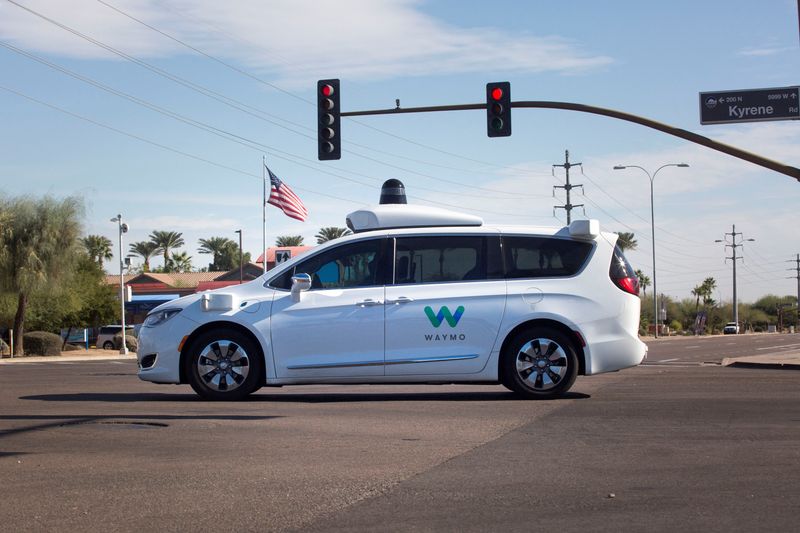JPMorgan’s Dimon weighs in on potential Fed chair candidates
Investing.com - Autonomous vehicles represent the "next technological revolution" that will be similar to humans shifting from using horses to cars, an expert in the technology told analysts at Bank of America.
Speaking in a call hosted by analysts at the bank, Siddharth Mehta, Senior Director at artificial intelligence computing company Tenstorrent and former product manager at Alphabet (NASDAQ:GOOGL)'s robotaxi unit Waymo, said he expects so-called Level 4 autonomous vehicles (AVs) will be "accessible in the next four years."
Level 4 AVs can complete driving tasks without the driver having to be ready to take over control of the car at any time.
Costs of AVs are also seen reducing gradually by 10% to 20% year-on-year as cloud computing expenses, inputs, and sensor technology becomes cheaper, Mehta predicted, the Bank of America analysts led by Justin Post said in a note.
"However, costs are unlikely to come down in a dramatic step-function, with ongoing cost headwinds including infrastructure, regulation, and public perception and/or marketing," the BofA analysts said in a summary of Mehta's statements.
Mehta specifically flagged that Waymo and peer Zoox, which design vehicles specifically for autonomous operation, will roll out cars that are less attractive but have effective sensors, the BofA analysts said.
Electric vehicle giant Tesla (NASDAQ:TSLA), on the other hand, will have a "good design" but look to improve its AV capabilities, Mehta said, according to the BofA analysts. Mehta argued that Tesla's Full Self-Driving offering is "still quite far" from achieving Level 4 AV status, adding that the company "has hurdles to overcome", the BofA analysts said.
Full Self-Driving, or FSD, is the most autonomous version of Tesla's Autopilot software, and includes features like traffic navigations, automated lane changes and self-parking. Tesla CEO Elon Musk has backed FSD as a possible cash cow for the business, although it has faced both regulatory and legal scrutiny.
Mehta added that ride-hailing giant Uber (NYSE:UBER) is also well positioned to benefit from AVs, arguing that it represents a long-term opportunity for the firm.
"He views Uber’s diversified mobility product portfolio as a key differentiator to create a hybrid model (especially versus [rival] Lyft 's (NASDAQ:LYFT) more simplified portfolio)," the BofA analysts said. "Dynamic fleet management is also a differentiator for Uber."
